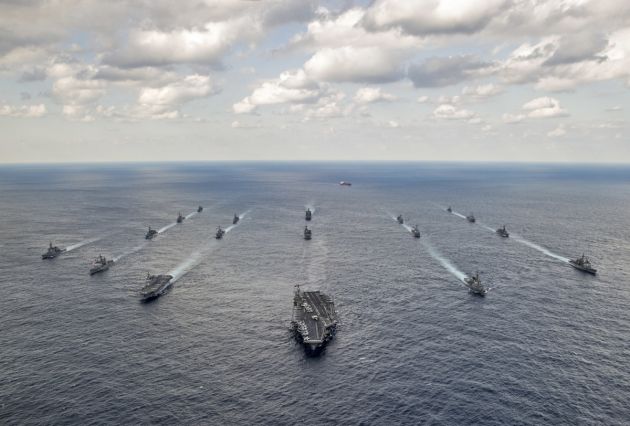World churches' leader troubled by Japan rereading peace clause in constitution

World Council of Churches general secretary, Rev. Olav Fykse Tveit, has expressed grave concern at the Japanese government's seeking to reinterpret or change the peace article of its constitution.
Adopted as part of the constitution in 1947, following the Second World War, Article 9 outlaws war as a means for Japan to resolve international disputes.
"We expect Japan to follow Article Nine. We are convinced of the power of Japan's positive example to influence the conduct of other States," Tveit said in a presentation at the 4th Global Inter-religious Conference in Tokyo.
On July 1 Japanese Prime Minister Shinzo Abe and his Cabinet engaged in a dramatic constitutional reinterpretation of Japan's constitution which had been read as imposing pacifism on the country.
It was seen as Japan not being allowed to engage in military force except in absolute self-defense.
But under Abe's new reading, the constitution would grant Japan the right to engage in collective self-defense – such as coming to the aid of allied forces under attack even if Japan itself is not targeted.
Tveit's Tokyo presentation was titled "Article Nine of the Japanese Constitution – A Pillar for Peace in Northeast Asia and Beyond."
It was delivered on December 3 at the Tokyo conference, which focused on Article 9 of the Japanese Peace Constitution, the WCC said in a statement.
Tveit noted that the main governing body of the WCC, its central committee in July adopted a policy position on Article 9.
The WCC committee expressed its grave concern at the Japanese government's initiative to reinterpret or change Article Nine."
Tveit also mentioned the significant role of Article Nine for peace in Northeast Asia. He said,
"Today, with East Asia emerging as a world centre, is surely the time for Article Nine to come into its own as a central pillar for peace."
PEACE-BUILDING
Tveit cited the role of religious communities in peace-building.
He said, "More and more religious leaders must rally around this pillar for peace, in Asia and beyond."
At the end of World War II, the United States and its allies occupied Japan and began to deconstruct its militaristic government.
During this process the U.S. occupying forces revamped Japan's legal system and sought to ensure that the east Asian country would never again lawfully threaten regional peace.
The result was Article 9 of the new Japanese Constitution.
The first clause announced that "the Japanese people forever renounce war as a sovereign right of the nation and the threat or use of force as means of settling international disputes."
The conference on Article 9 of the Japanese Peace Constitution was held at the YMCA Asia Youth Center in Tokyo from 1 to 5 December.
More than 100 participants from religious communities and organizations such as Catholic, Protestant, Buddhist, Muslim and worldwide church bodies and NGOs attended the conference.